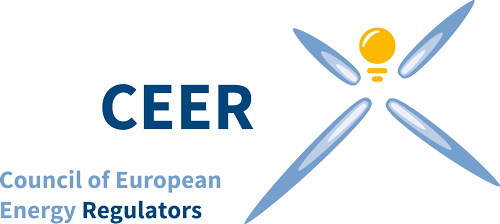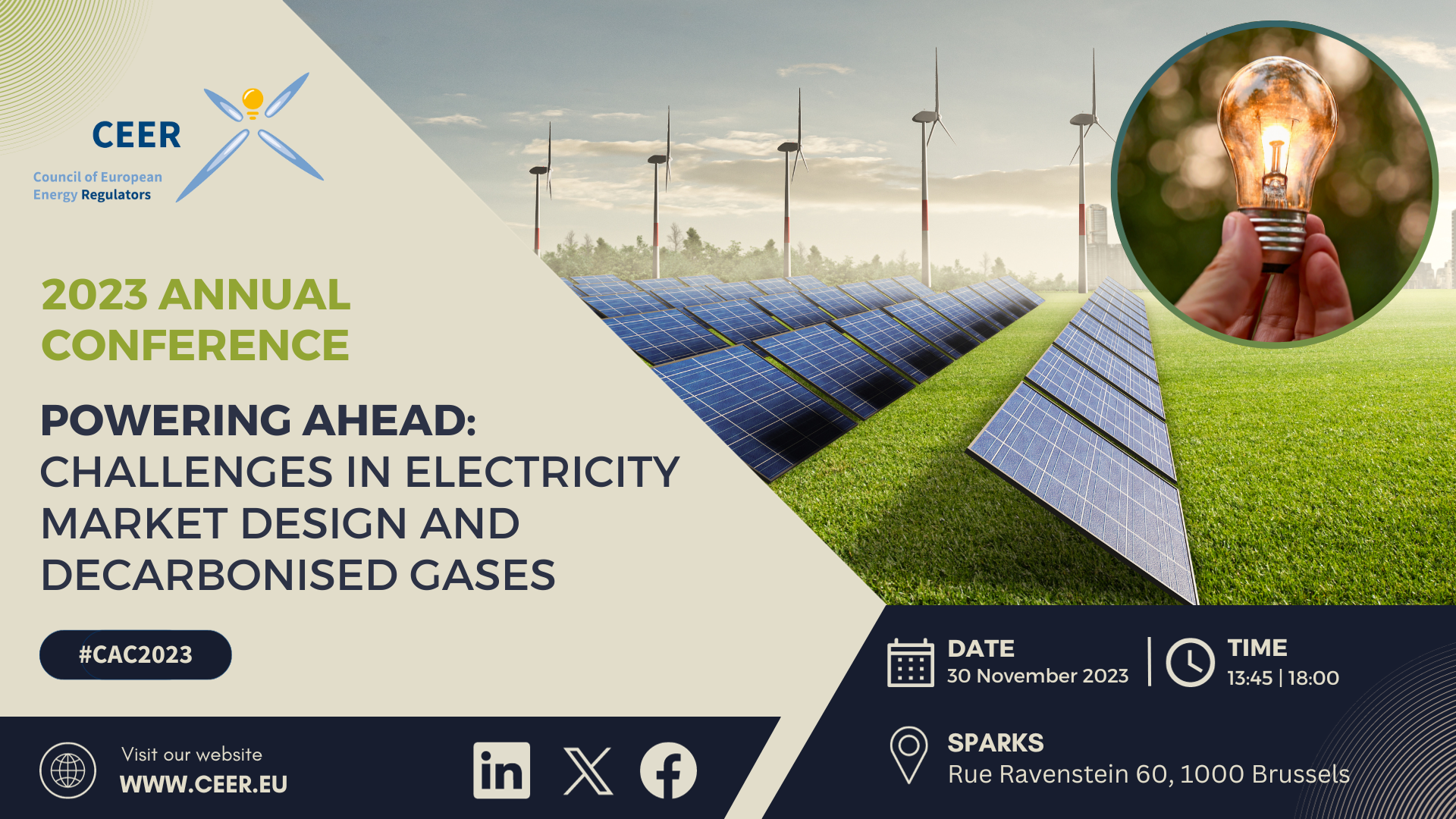Information
The CEER Annual Conference offers insightful discussions to move relevant energy issues forward. The energy sector is undergoing a significant transformation, with electricity market design playing a pivotal role. Last year’s conference looked at electricity market design (EMD) before there was even a proposal; legislation has progressed since then. Therefore, this year's CEER conference aims to start by looking at longer-term issues and/or challenges beyond the scope of the EMD reform proposal; are there any topics which remain after the review and proposed amendments?
The second session will discuss and explore the latest advancements, challenges, and opportunities in leveraging decarbonised and low-carbon gases to achieve a sustainable, carbon-neutral future. As the global focus on sustainability and climate change intensifies, the role of decarbonised and low-carbon gases in the energy transition has become increasingly important, as seen in the Hydrogen and decarbonised gas markets package.
Our speakers, including industry experts, policymakers, researchers and, of course, regulators, will enlighten us on these subjects.
Do you want to be informed about this event and others? Subscribe to our news alerts.
Highlights of the 2023 CEER Annual Conference
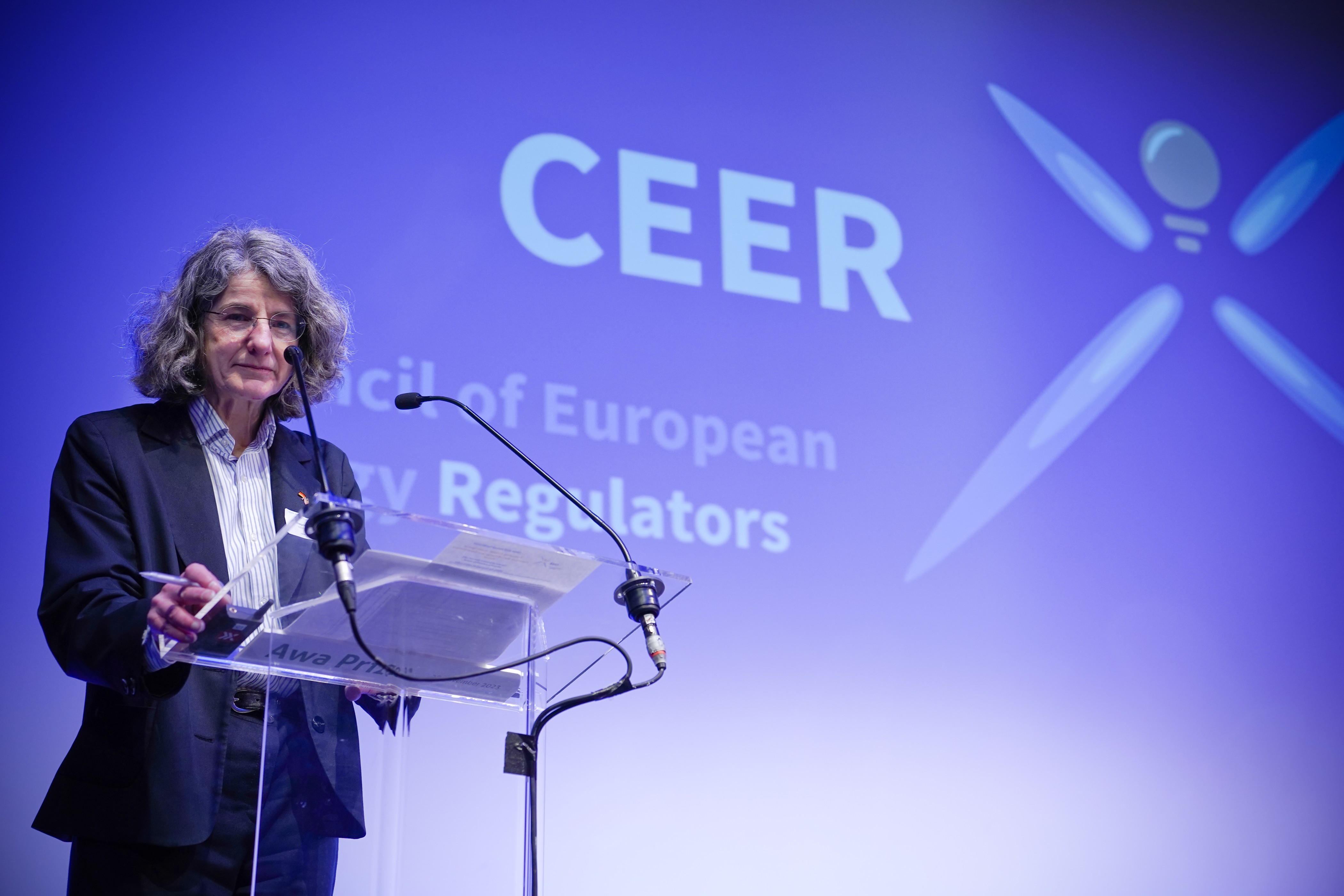 In her introductory remarks, CEER President, Annegret Groebel stressed the importance of involving all stakeholders in the energy transition, with consumers at its core, in order to achieve the objective of a carbon neutral power system by 2050. She stressed the opportunity presented by the current challenges of the energy sector to make sure that the implementation of the new legislative and regulatory framework will work in favour of European consumers.
In her introductory remarks, CEER President, Annegret Groebel stressed the importance of involving all stakeholders in the energy transition, with consumers at its core, in order to achieve the objective of a carbon neutral power system by 2050. She stressed the opportunity presented by the current challenges of the energy sector to make sure that the implementation of the new legislative and regulatory framework will work in favour of European consumers.
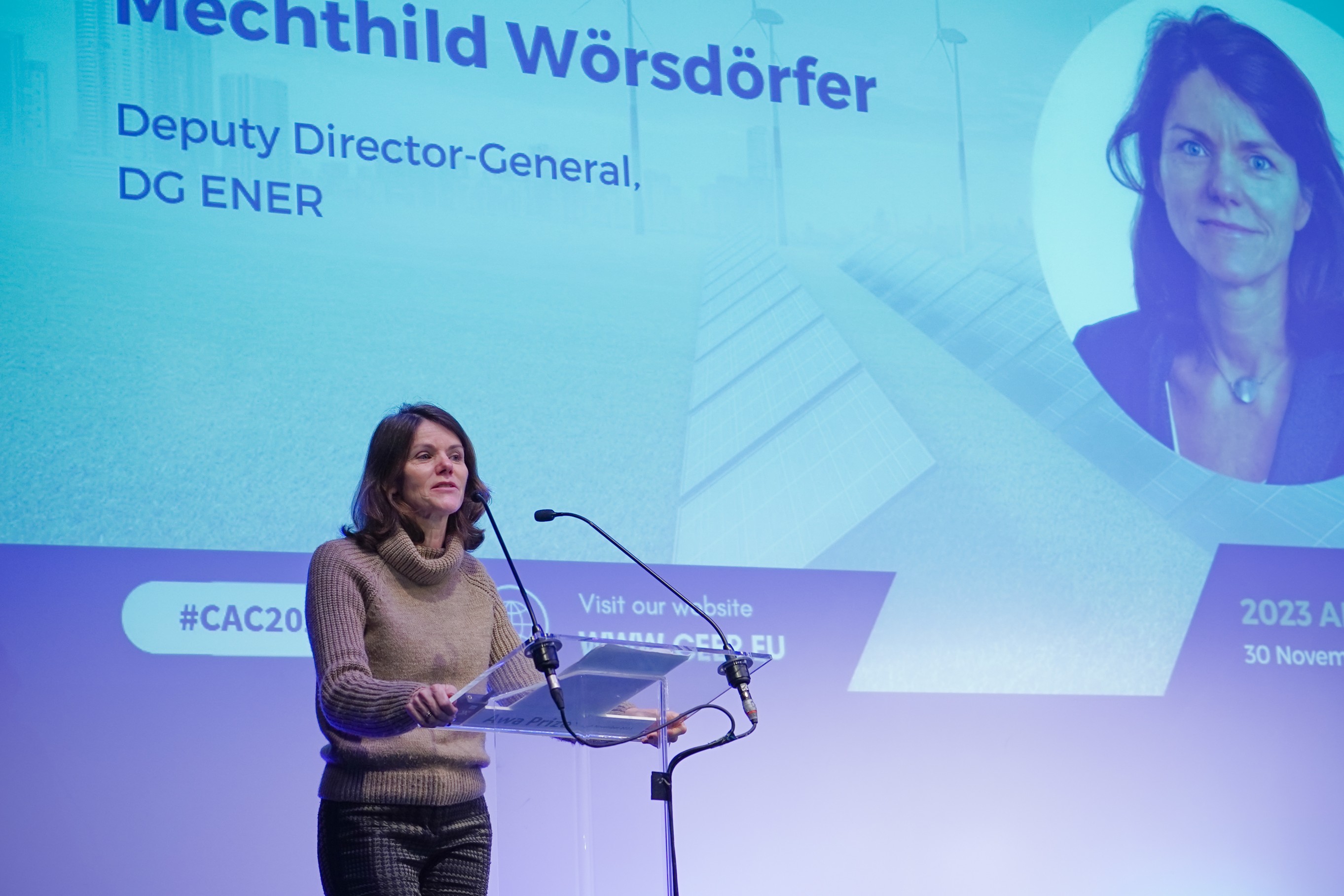 In her keynote speech, DG ENER Deputy Director-General Mechthild Wörsdörfer provided an overview on the EMD reform proposal and more broadly on the work of the European Commission (EC). Regarding the key topic of electricity grids, Ms Wörsdörfer highlighted that the EC has recently published an action plan which provides 14 concrete actions for NRAs, TSOs, and other stakeholders to ensure the development of an electricity grid that is fit for purpose. Moreover, the decarbonisation of gas and hydrogen package and its key role in the decarbonisation of gas, and scaling of hydrogen market amidst increasing electrification was reflected upon. Lastly, she underlined that the energy transition must work for consumers, both by protecting them and empowering them.
In her keynote speech, DG ENER Deputy Director-General Mechthild Wörsdörfer provided an overview on the EMD reform proposal and more broadly on the work of the European Commission (EC). Regarding the key topic of electricity grids, Ms Wörsdörfer highlighted that the EC has recently published an action plan which provides 14 concrete actions for NRAs, TSOs, and other stakeholders to ensure the development of an electricity grid that is fit for purpose. Moreover, the decarbonisation of gas and hydrogen package and its key role in the decarbonisation of gas, and scaling of hydrogen market amidst increasing electrification was reflected upon. Lastly, she underlined that the energy transition must work for consumers, both by protecting them and empowering them.
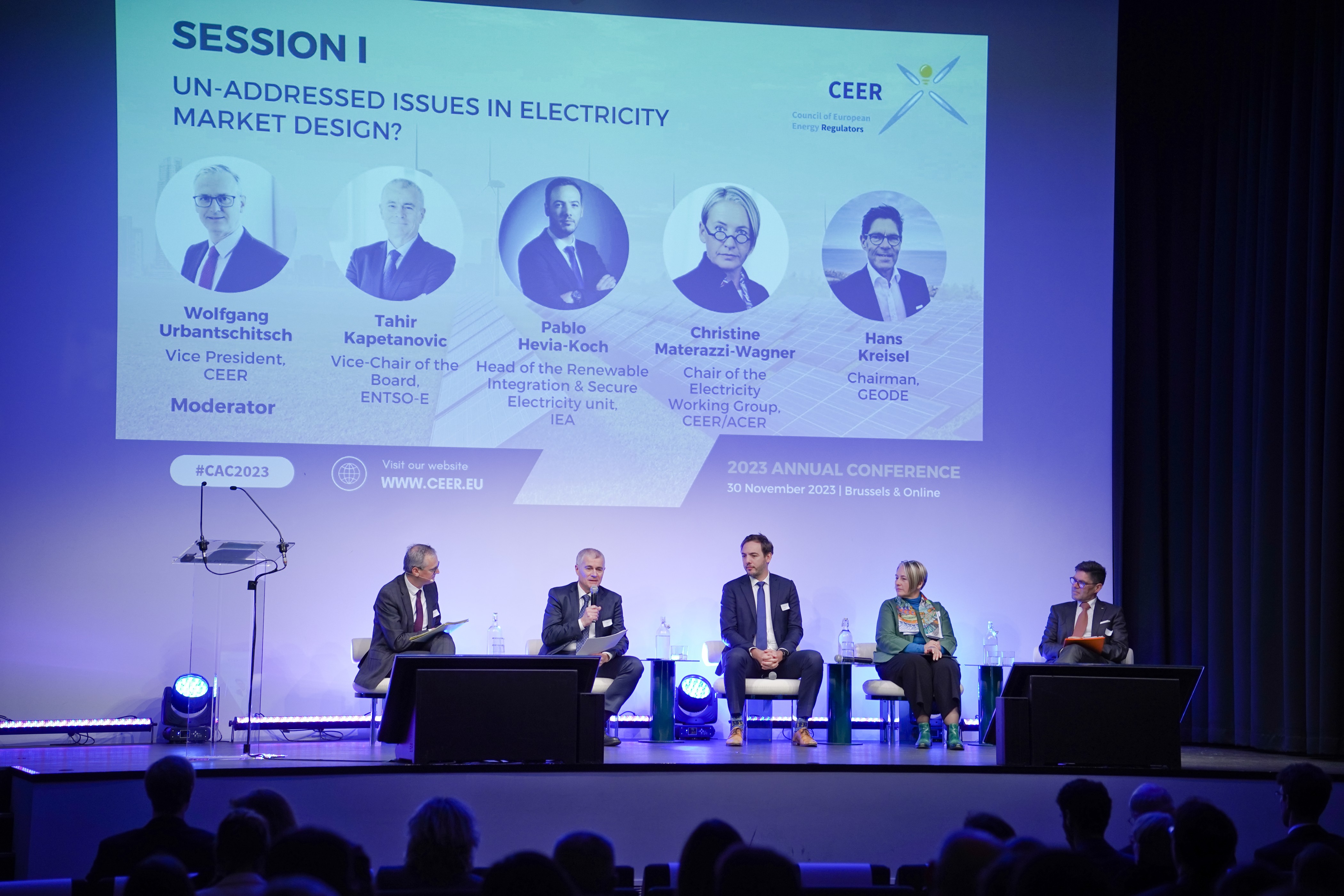 The first panel reflected upon the impressive work put forward by the EC amidst the energy crisis, which demonstrates that the EU and its members were able to come together and find solutions when it was needed. The EMD reform which as stated by Deputy Director-General Mechthild Wörsdörfer “…is a targeted proposal which looks at the longer-term framework, addressing the rise of renewables, phase out of gas, and how to better protect and empower the consumer in the future”, is very much welcome by panellists. Nonetheless it was acknowledged that further challenges in a continuously evolving system that go beyond 2030 will need to be addressed.
The first panel reflected upon the impressive work put forward by the EC amidst the energy crisis, which demonstrates that the EU and its members were able to come together and find solutions when it was needed. The EMD reform which as stated by Deputy Director-General Mechthild Wörsdörfer “…is a targeted proposal which looks at the longer-term framework, addressing the rise of renewables, phase out of gas, and how to better protect and empower the consumer in the future”, is very much welcome by panellists. Nonetheless it was acknowledged that further challenges in a continuously evolving system that go beyond 2030 will need to be addressed.
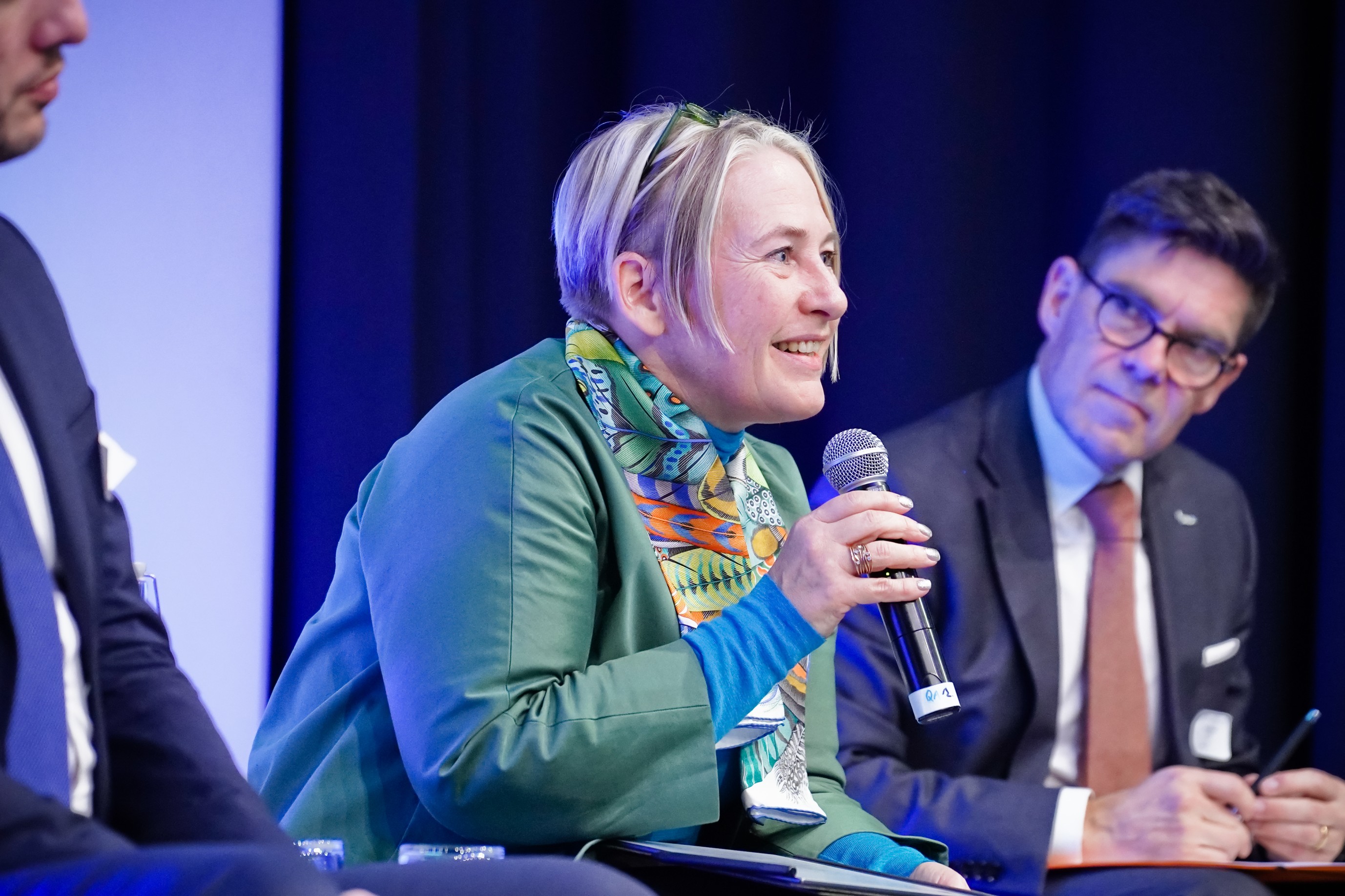 Discussions revolved around the challenges with the EMD, the need to further close the gap between the market and the physical system through stronger locational signals, as well as ensuring system adequacy amidst a system with increasing intermittent renewables and uncertainty. The speakers also stressed the importance of effective implementation of adopted legislation which could provide solutions to many existing challenges. In this regard, Christine Materazzi-Wagner stated that although locational pricing and nodal market model has its charm, we should also utilise and optimise the tools that we already have at our disposable such as the bidding zone review. Furthermore, the panellists debated whether interventions in the markets should be included in the market design with clear and transparent rules.
Discussions revolved around the challenges with the EMD, the need to further close the gap between the market and the physical system through stronger locational signals, as well as ensuring system adequacy amidst a system with increasing intermittent renewables and uncertainty. The speakers also stressed the importance of effective implementation of adopted legislation which could provide solutions to many existing challenges. In this regard, Christine Materazzi-Wagner stated that although locational pricing and nodal market model has its charm, we should also utilise and optimise the tools that we already have at our disposable such as the bidding zone review. Furthermore, the panellists debated whether interventions in the markets should be included in the market design with clear and transparent rules.
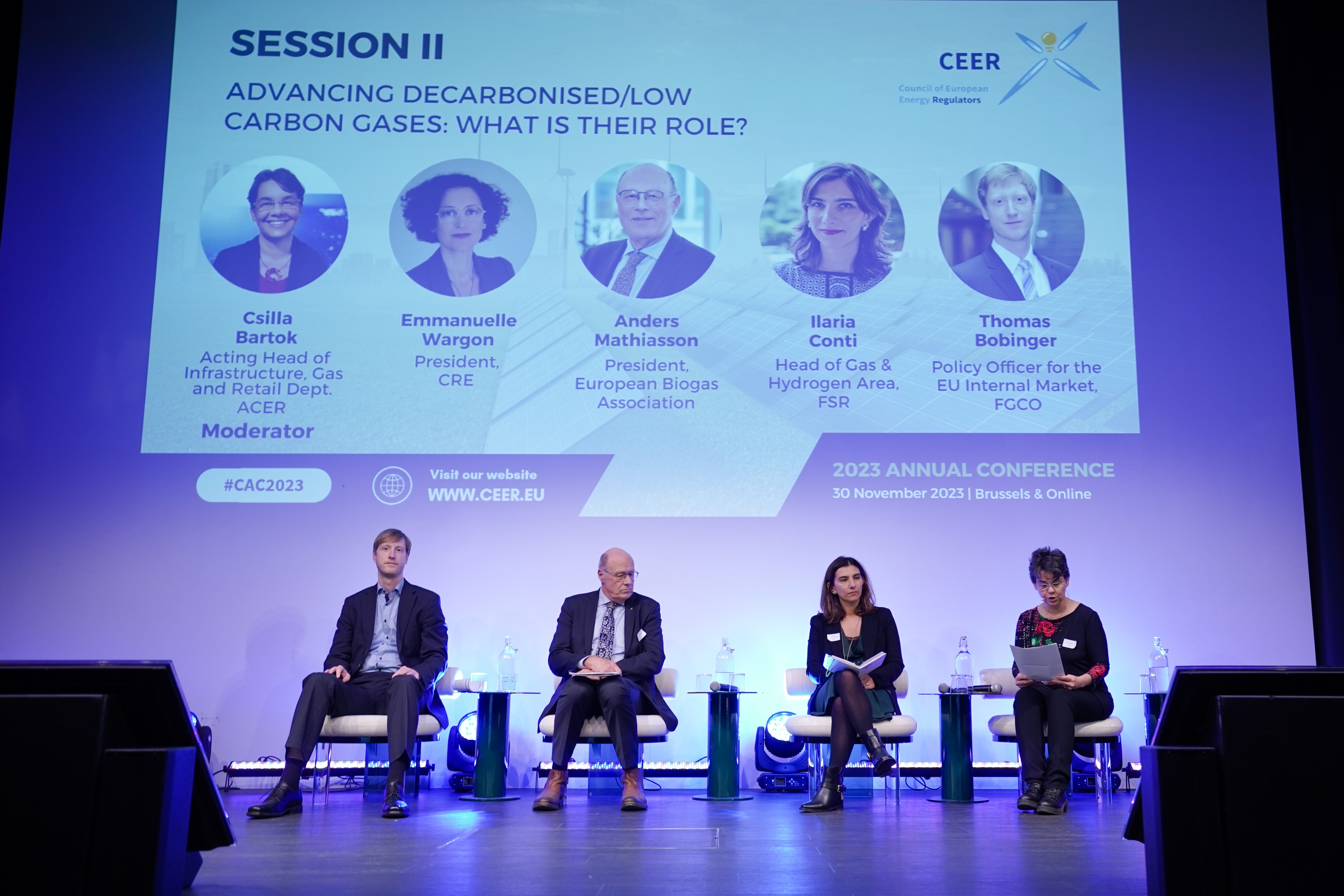 The second panel focused on the latest advancements, challenges, and opportunities in leveraging decarbonised and low-carbon gases to achieve a sustainable, carbon-neutral energy system. Panellists discussed how these gases have a growing role to play in Europe's energy mix, as highlighted by the Hydrogen and decarbonised gas markets package. Csilla Bartok, ACER acting Head of Gas Department, indicated that gas will remain essential to provide flexibility to our current energy system until the electricity grid develops sufficient alternatives. This was further supported by Emmanuelle Wargon, President of CRE, the French Energy Regulatory Authority, who confirmed that biogas and biomethane provide credible solutions to decarbonise energy consumption.
The second panel focused on the latest advancements, challenges, and opportunities in leveraging decarbonised and low-carbon gases to achieve a sustainable, carbon-neutral energy system. Panellists discussed how these gases have a growing role to play in Europe's energy mix, as highlighted by the Hydrogen and decarbonised gas markets package. Csilla Bartok, ACER acting Head of Gas Department, indicated that gas will remain essential to provide flexibility to our current energy system until the electricity grid develops sufficient alternatives. This was further supported by Emmanuelle Wargon, President of CRE, the French Energy Regulatory Authority, who confirmed that biogas and biomethane provide credible solutions to decarbonise energy consumption.
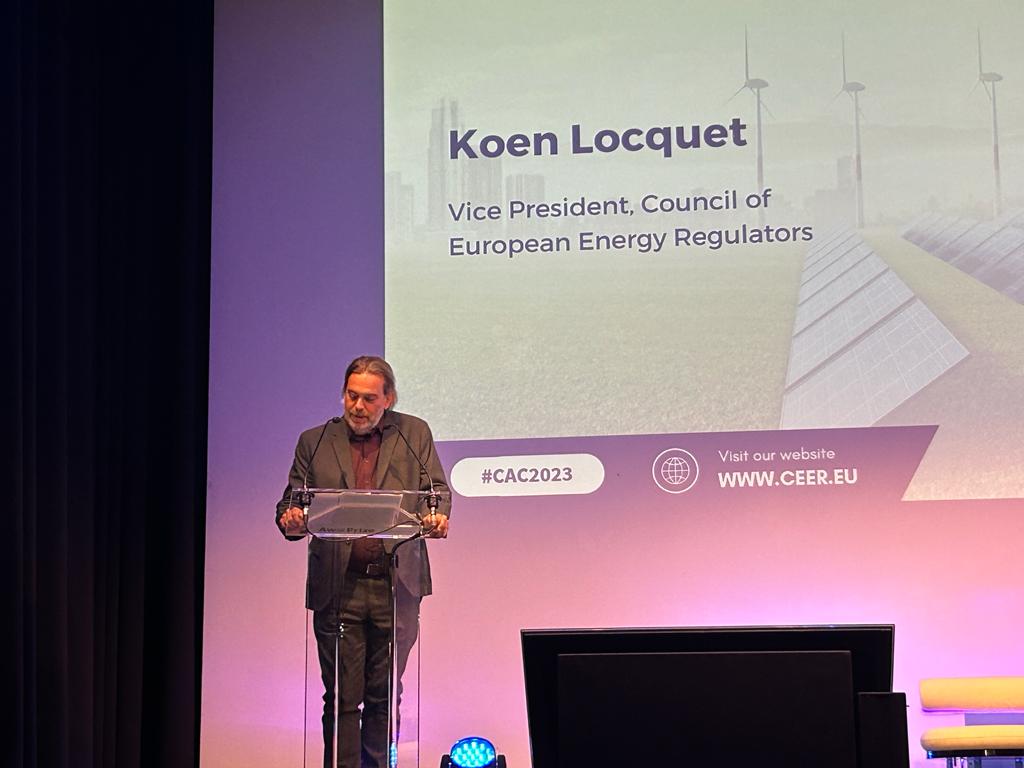 In his concluding remarks, CEER Vice President Koen Locquet thanked all the speakers and participants of the CEER Annual Conference 2023 and reiterated that there is no one and only EMD. He stated that all stakeholders should learn from each other and also consider views from outside of Europe. Finally, he concluded that consumers should remain at the centre of the ongoing debate over the future of Europe's energy transition.
In his concluding remarks, CEER Vice President Koen Locquet thanked all the speakers and participants of the CEER Annual Conference 2023 and reiterated that there is no one and only EMD. He stated that all stakeholders should learn from each other and also consider views from outside of Europe. Finally, he concluded that consumers should remain at the centre of the ongoing debate over the future of Europe's energy transition.
